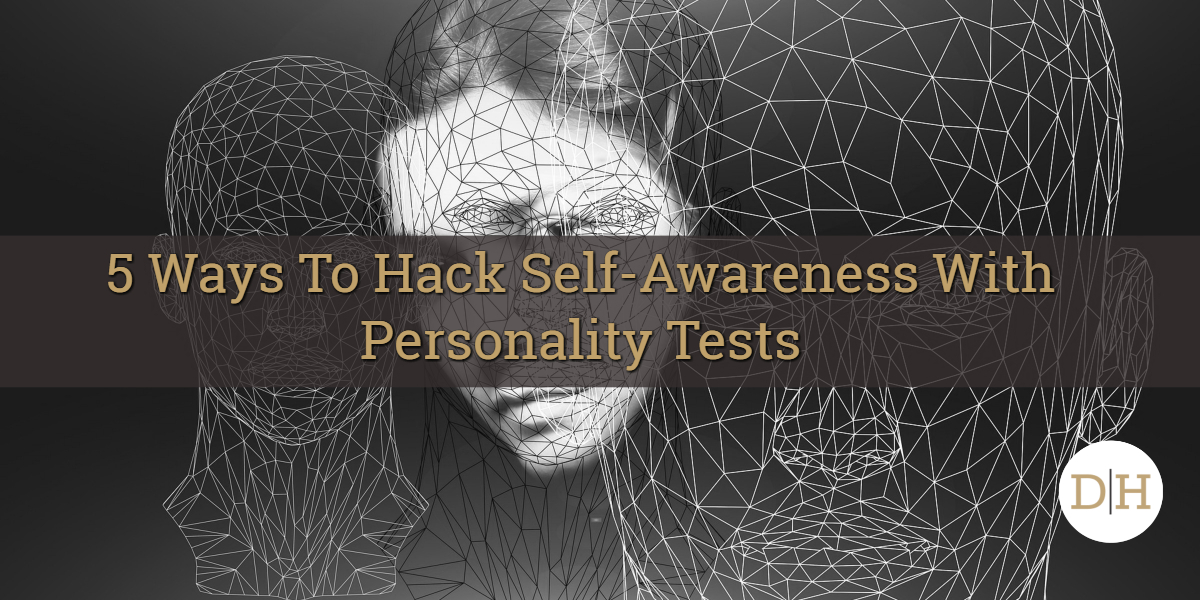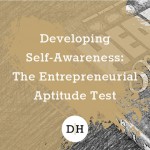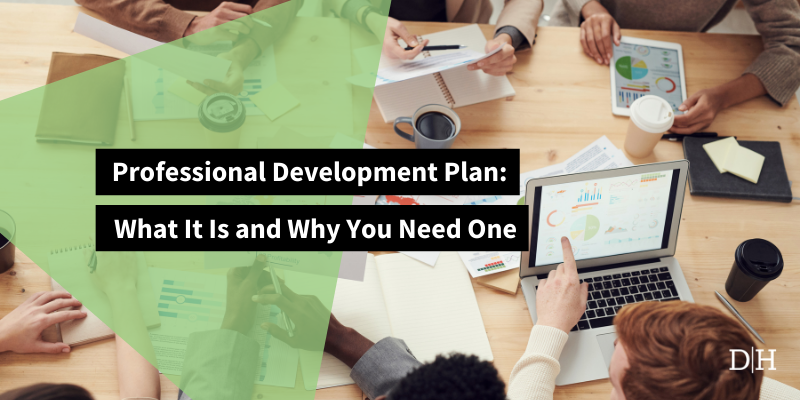A recent article from Lifehacker made the bold claim that “Self-Improvement Is Impossible Without Self-Awareness”. And they’re not alone. A 2010 study on the role self-awareness plays in leadership showed, “a high self-awareness score [to be] the strongest predictor of overall success.” Bottom line: if you want to be successful, start with an examination of yourself.

Of course, just about everything in this world is easier said than done; developing better self-awareness is no exception. I’m of the opinion that one of the best ways to become more self-aware is to regularly test yourself and act on those results. So let’s look at how you might use personality tests to develop better self awareness.
1. Test yourself
In preparation for this article, I spent last week taking four separate personality tests. Each test is designed to reveal more about you and how you’re mind works. In total, I took:
If you’re looking to enter (or make a bigger impact in) the business world, I highly recommend you do the same. However, take the tests actively, not passively. Look for ways to incorporate the results and analysis into your pursuits of business success.
For example, let’s look at my StrengthsFinder 2.0 results from last week:
- Activator
- Harmony
- Includer
- Positivity
- Connectedness
Now, as I mentioned in the original post, I’m no stranger to the StrengthsFinder test. At MaxCDN we ask new hires to take the test in order to discover how they work best. In my case, my greatest strength lies in my ability to turn ideas into action (Activator). So for me, I would leverage this self-knowledge by putting myself in a position where I can help dreamers make reality of their ideas.
For you, after you’ve taken the test, think about how you can best leverage your talents. How can you play to your greatest strengths? And perhaps just as important, how can you hire strategically in order counteract your weaknesses.
2. Attack your weaknesses
By building a picture of your psyche through testing, look for areas to improve as you analyze the results. If we look at my 16Personalites results, you can see that I score quite highly on the Assertive side of the Assertive vs. Turbulent spectrum.
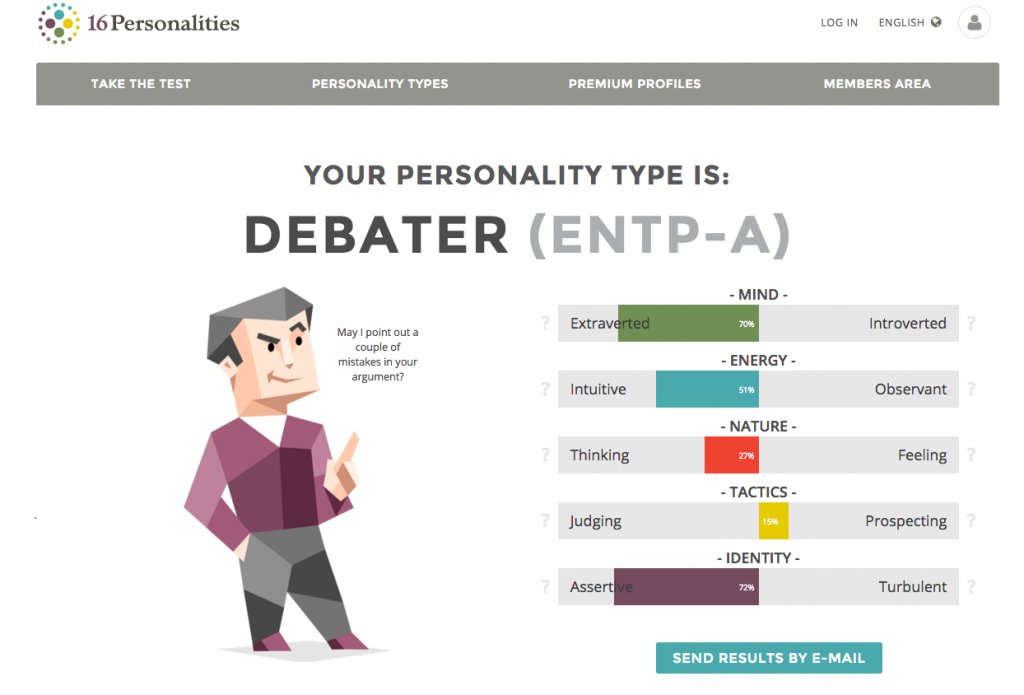
The conclusion here, according to the site, is that I’m less likely to be concerned with achieving goals than if I scored on the Turbulent end. This seems like a challenge to be more proactive in my pursuit of success. Which means more rigid goal-setting, progress tracking, and analysis of my actions.
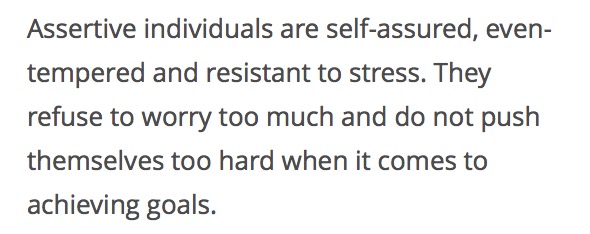
And that, is where self-awareness is most powerful. In coming to terms with your potential weaknesses and making a crucial decision: will I allow my weaknesses to control me? Or will I take action to control them?
As a further example of this, back when I was still new to the business world I realized I had a problem— I was deathly afraid of social interactions. An introvert, I found my antisocial tendencies to be somewhat destructive when it came to business. However, by coming to terms with this weakness, I was able consistently take steps to reduce its power over me.
The result? Look again at the above results. I score a solid 72% in the Extroversion vs. Introversion spectrum. I successfully controlled my weakness.
That’s not to say introversion is bad necessarily. Just for me, and for who I wanted to be, it was a quality detrimental to my success. Which brings us to our next point…
3. Who do you want to be?
To paraphrase Alice and the Cheshire Cat, “If you don’t know where you are going, any road will get you there.”I knew, early in my career, that I would need to lessen the power of my own introversion. I had a picture of who I needed to be and I was able to direct my energy towards that vision.
What about you?
Do you know who you want to be? Because in order to get there, to truly walk the path of self-development, you’ll need to know where you’re going.
Take a moment to map out the “ideal you”. I’d suggest looking at the results of the personality tests mentioned above as you do this. Are there any areas you’d like to change? Why? And what level of change would you consider success?
RELATED: Which of these four types of salesperson are you?
4. Examine your relationships
One of the strongest reasons to develop stronger self-awareness is the positive effect it can have on your relationships with others. Success in business is never a solo affair. At some point in your career, you’ll need to manage a relationship with another individual in order to achieve your goals.
According to the study cited in the introduction interpersonal skills are massively important in order to succeed as a business leader. “Such weaknesses as being “arrogant,” “too direct,” or “impatient and stubborn” correlated with low ratings for delivering financial results, business/technical acumen, strategic intellect, and, not surprisingly, managing talent, inspiring followership, and being a team player” (Flaum, 2010). Understanding your own skills and weaknesses in this area is a crucial step to making the most of your relationships.
The 16Personalites test in particular is a very good way to come to terms with your interpersonal abilities. Analyze your results from the context of working with others, how might you make a relationship more rewarding for both parties?
5. Double down on your strengths
My Entrepreneurial Aptitude results listed me as “Heart-Dominant”. According to the research, I actually share this with the majority of founders.
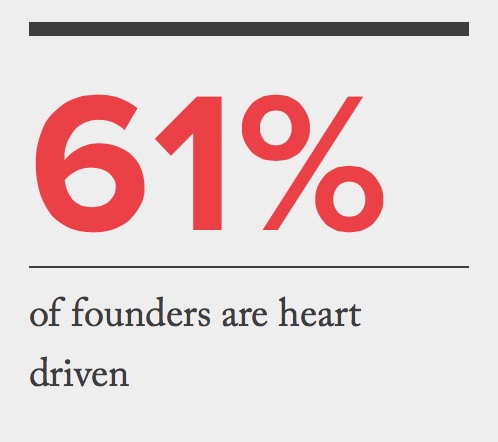
So should I concern myself with the bean counting financial minutiae of my business? Should I spend time overseeing the see the technical team, ensuring every line of code is 100% perfect before it’s deployed?
Of course not!
Knowing my strengths allows me to take the path where I’m most likely to succeed. According to the results, I work best when I’m directing the vision of an organization. I’ll be most successful as a passion-first executive, as opposed to a micromanaging perfectionist.
From another angle, if we look at my Kolbe results…
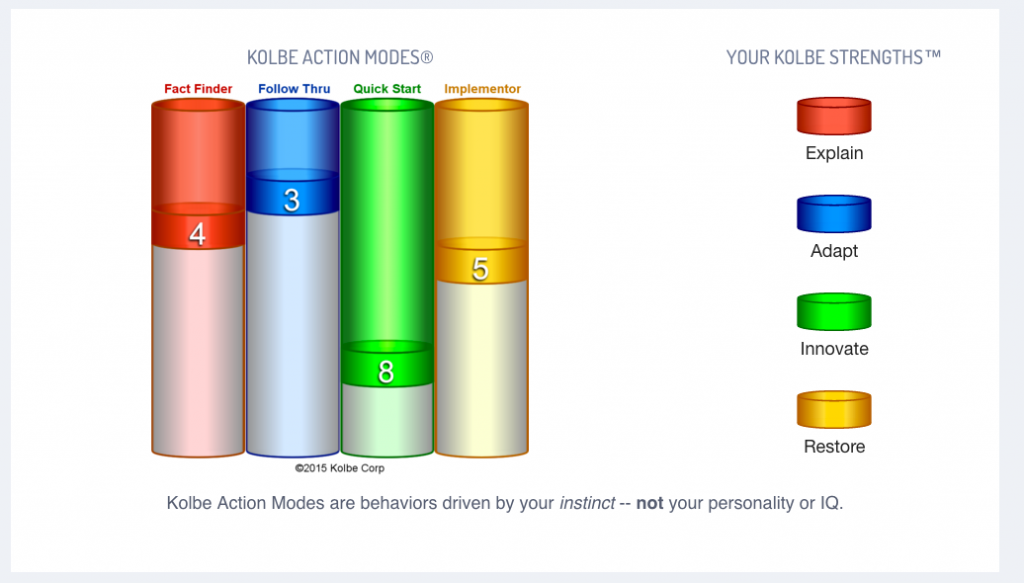
…we see that I’m most powerful as an instigator of action. It would be counterproductive to have me overseeing the research phases of a project. Instead, in order to be most productive my role should be in taking a project off the drawing board and ensuring it’s put in motion. And funnily enough, that’s exactly what I do at MaxCDN.
What about you? If you’ve taken the EAT or Kolbe tests, what do they say about your strengths? Are you putting yourself in a position where you’ll be able to lead with your strengths?
Constant Analysis: a.k.a. Self-Awareness Steroids
In order to make all of the above steps work, you’ll need to commit to regular analysis. If you’re not used to regularly taking time out of your day to evaluate yourself, this might be a bit of a challenge for you. However, it’s absolutely essential if you want to become more self-aware.
Set up a routine where you evaluate yourself based on the “ideal you” you defined in step three. I recommend using the personality tests to help you with these evaluations. You’ll want to set goals for yourself, identify weakness you’d like to diminish, and changes you’d like to make in the way you interact with others.
To give your evaluations more power, make sure you clearly define what needs to change and how you’ll know when you’ve done so. This is the kind of devotion to self-improvement you’ll need to adopt if you want to become self-aware. As with anything, if it isn’t measured it won’t improve.
Reading this article, I’d recommend you take the first step right now, and establish a baseline for those measurements. Take the four tests I’ve listed, then immediately decide how you’ll implement the results in your life.
